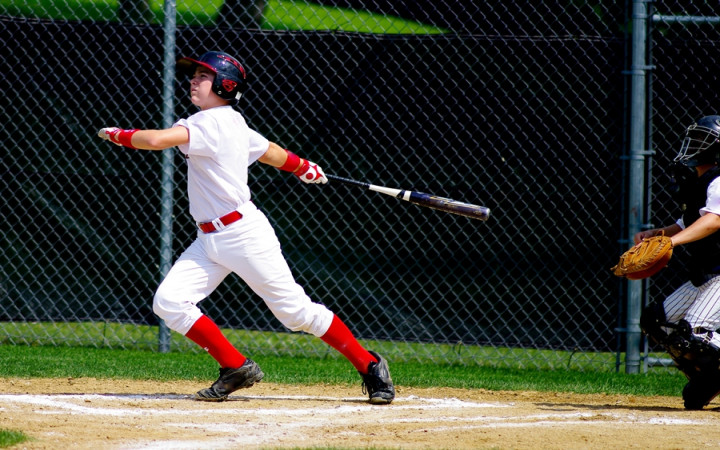Today’s Wonder of the Day was inspired by Trevor from Encinitas, CA. Trevor Wonders, “Who hit the longest home run?” Thanks for WONDERing with us, Trevor!
On warm summer days, there's nothing quite like spending the day at your favorite ballpark. Whether you're playing baseball or softball or watching your favorite team do battle against its rival, great memories are sure to be made!
If you've ever played baseball or softball, you know that one of the true joys of stepping up to the plate is making solid contact with the ball. A base hit — or even a double or a triple — can be thrilling. In fact, there's only one thing that tops those. What are we talking about? A home run, of course!
Whether you call it a homer, a dinger, or a blast over the outfield fence, the ultimate batting achievement is to take a big swing, hear the satisfying crack of the bat as it hits the ball, and watch the ball sail through the air until it clears the playing field and lands in the stands.
Home runs are definitely one of the most exciting parts of a major league baseball game. Fans jump and shout for joy when a player knocks one out of the park. It's quite a sight to see a professional baseball player hit a fastball hundreds of feet in the air. In fact, it's so exciting that one of the highlights of the major league baseball season is the Home Run Derby that occurs every year right before the All-Star Game.
Baseball fans love statistics, and plenty of statistics are kept for home runs. One of the most cherished records in all of major league baseball is the most career home runs. Held by many years by baseball legend Babe Ruth, the career home run record was broken in 1974 by Hank Aaron. Aaron retired with a total of 755 career home runs.
Aaron's record would stand for over 30 years. In 2007, Barry Bonds broke Aaron's record and eventually retired with 762 career home runs. How long will Bonds' record stand? No one knows!
Another record that baseball fans are often curious about is the longest home run ever hit. Unfortunately — and surprisingly, given baseball's fascination with statistics — there's no easy, clear-cut answer to the question of who hit the longest home run!
“How can that be?" is a question that may immediately come to mind. With all the statistics and records kept in baseball, plus the technology available today, how can we not know who hit the longest home run?
The main reason why statistics aren't kept on home run distances is that it's simply too hard to measure accurately the distance a ball travels. If you're in a wide-open field, you can hit a ball as far as possible and then measure the distance from where you hit the ball to where it landed.
In major league stadiums, however, a home run ball rarely ever completes an unimpeded journey to the ground. If you think about the home runs you've witnessed, you'll understand the problem. When a home run ball clears the outfield fence, it usually hits a wall, a pole, a roof, a scoreboard, a seat, or even a fan's glove.
Modern stadiums have software that can estimate how far a home run ball travels before it hits one of these objects. Such an estimate is an approximate distance, but it's not exact and can't predict how far the ball would've traveled unimpeded. Plus, today's technology wasn't around for the thousands upon thousands of home runs that have been hit since baseball began.
All that being said, there are some historic blasts that many baseball experts can agree would definitely be in the running for the longest home run ever. When researching longest home runs, you'll likely run across claims that legends like Mickey Mantle and Babe Ruth hit home runs well over 600 feet.
When you consider that many baseball stadiums have centerfield fences around 400 feet from home plate, such blasts would be truly spectacular. Unfortunately, those mammoth distances were measured from where the ball stopped rolling after bouncing several times — not where it first landed.
When considering only landing distance, however, there are a few home runs that arguably measured well over 500 feet. For example, Reggie Jackson's famous home run at Tiger Stadium during the 1971 All-Star Game is thought to have traveled approximately 532 feet. Its distance would have been even greater had it not hit a light tower!
Others believed to have hit home runs in excess of 500 feet include Ted Williams, Mark McGwire, and Cecil Fielder. Of course, legends such as Mantle and Ruth (and others!) would probably be in that club, too, had today's technology been available back when they played!




